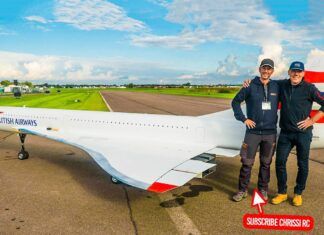Several readers took exception to my comment in the Vashon Ranger review advising pilots to fly these airplanes beyond the 1320-pound limit. Said one message forwarded to me: “I just don’t think it’s right for someone who does so many reviews of so many aircraft to basically wink and nod and tell people it’s OK to fly outside the limits set forth in the regulations. He is setting himself … and AVweb up for potential liability if anything were to happen.”
This would be a valid point if I had actually said that. What I really said, in the narration of the video, is that the 1320-pound light sport aircraft weight limit is the mostly widely abused regulation in aviation and that I pass no moral judgment on this, but merely note that it’s reality.
Actually, I think I was probably wrong anyway. The most widely abused regulation is FAR 91.155—the VFR cloud clearance requirement. I’m quite certain as I write this, someone—maybe a lot of someones—is skirting by a wisp of cloud that’s way less than 2000 feet away. No, we shouldn’t do this. No, I’m not going to scold you if you’ve done it or if you’re reading this on your smartphone while you’re actually doing it. You should be looking out the window. I’m pretty sure it’s up to you to make your own risk judgments independent of my thundered wisdom from the wizened perch of my office chair. And no, I won’t invoke the slippery slope analogy.
I know why readers—and there were a handful—take exception to such seemingly mealy mouthed pronouncements and I certainly don’t fault them for it. Many pilots view aviation writers as opinion leaders but I long ago got over believing too much of that sort of outgassing. Aviation writers should inform, entertain and occasionally instruct and a few see themselves as moral beacons. I’m not one of those. And I’m definitely not one to pander to an audience by saying one thing while believing or doing another. So I occasionally get into trouble by describing realities some don’t agree with or haven’t experienced. I think it’s important to see the world as it actually is—and to report on it—rather than describing it as we would like it to be.
In my experience, some owners do fly light sport airplanes over their published gross weight because they have told me so and because many believe the airplanes are arbitrarily and artificially limited to lower weights. This is demonstrably true for some models, like the Cub types from CubCrafters and Legend. Both are based on Super Cub airframes originally certified to 1750 pounds. It’s an artifice to think flying an LSA version at 1350 pounds courts death. My last sweep of the LSA accident record revealed no accidents related to overweight ops. I’ve added another look to my to-do list. The much larger risk is pilots losing control of airplanes on landing or takeoff and balling them up as a result. Neither of these observations is a suggestion that you, as an LSA pilot, should take my lack of damning of such things as tacit approval. It’s your show; play it as you wish.
But it’s a fact that flying overgross is a FAR violation and a further fact that this stretching of the rules doesn’t apply equally to all airplanes. In a sense, in the LSA segment, this is an example of market forces at work. People want what they want and they’ll get there somehow. One hopes safely, but safe and legal aren’t always the same thing. Some pilots like to pound a moral guidepost into the ground by observing regulations to the exact letter and I pass no judgment on that, either. In fact, I admire the discipline.
In my view, most of us got into aviation partly out of a desire to make these sometimes difficult risk assessments and not rely on others to tell us what to do nor necessarily agree if they make a different judgment related to risk. A writer smarter than I would just avoid these discussions altogether or would think one thing and say another. If I ever had the stomach for that, I don’t now. One thing I left off my list above of what aviation writers should do is to occasionally provoke. Whether you agree or not, at least examining why you think what you think is a good thing.
Just don’t look to me for an imprimatur either way.

































